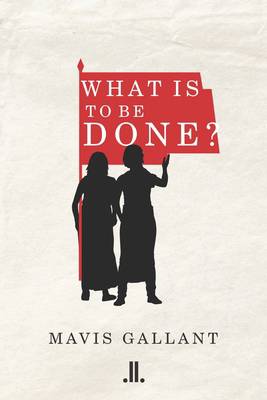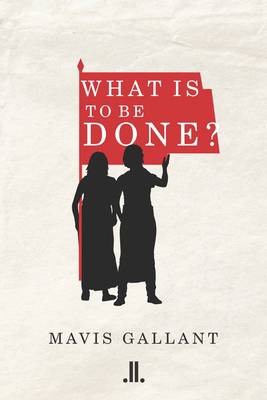
- Retrait gratuit dans votre magasin Club
- 7.000.000 titres dans notre catalogue
- Payer en toute sécurité
- Toujours un magasin près de chez vous
- Retrait gratuit dans votre magasin Club
- 7.000.0000 titres dans notre catalogue
- Payer en toute sécurité
- Toujours un magasin près de chez vous
Description
Mavis Gallant's only play, which premiered at Toronto's Tarragon Theatre on November 11, 1982, is a comedy that opens in 1942, in the heat of the battle against Fascism, when it was possible for Canadians to cheer for both Stalin and the Royal Family. At home in Montreal, Jenny (18) is impressed by her friend Molly's copy of a political pamphlet written by V. I. Lenin entitled What Is To Be Done? The two young women are fascinated by the refugees who are flooding into the city from Europe, and they spend their spare time on left-wing political activity in support of the Soviet Union, dreaming of the new world they're certain will arise out of the ashes of the war. Drawing on Mavis Gallant's unpublished journals, the introduction by Linda Leith situates the play in the context of the author's life and work. "Before she left for Europe in 1950, Gallant destroyed all the poems and stories she had been writing, along with all the diaries she had kept. In the Linnet Muir of the Montreal stories and in the Jenny and the Molly of the play we have vivid portraits of young women whose hopes and fears and passions and dreams tell us as much as we are ever likely to know about the young woman who became Mavis Gallant.?
Spécifications
Parties prenantes
- Auteur(s) :
- Editeur:
Contenu
- Nombre de pages :
- 123
- Langue:
- Anglais
Caractéristiques
- EAN:
- 9781988130224
- Date de parution :
- 02-09-17
- Format:
- Livre broché
- Format numérique:
- Trade paperback (VS)
- Dimensions :
- 137 mm x 213 mm
- Poids :
- 181 g

Les avis
Nous publions uniquement les avis qui respectent les conditions requises. Consultez nos conditions pour les avis.






